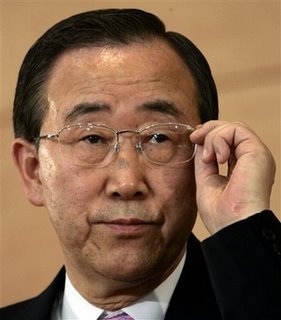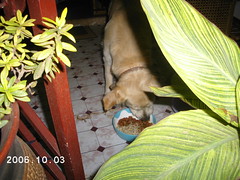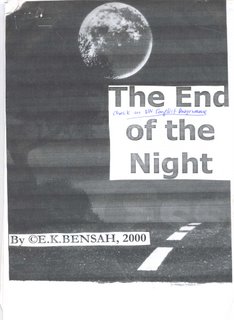Blogging Redux: The Good, the Bad, and the Cautionary
Two recent items in the news have conspired to take me back to the post I wrote about the blogger who was being threatened by a reader to reveal all about his past as a so-called alcoholic and lover-of-sex . I re-call that regular reader Sissoula, of lessisapossibility blog-fame called it a “dangerous business”—and rightly so. She also wondered whether all the naughty stuff that I had written about my ex, in fact: “everything you've posted just a google search away from your colleagues, friends, girlfriends, ex-girlfriends... Aren't you concerned about this?)”.
To this, my visceral response would be “no.” I am not a criminal, and I really have nothing to hide. Free speech is all well and good as long as it doesn’t offend, and as far as I conceive of the information I have divulged, it has not sought to offend, and it is not about to any time soon.
All that being said, Jan Pronk, UN man, being expelled from Sudan for comments he wrote on his blog about the Sudan crisis is a gentle and explicit reminder about divulging all. I cannot help but wonder, though, about this UN diplomat. In diplomacy, you just have to be diplomatic, no? I know some might find it hard to believe this, but last time I looked, that’s what I understood.
Then again, in the interest of mankind, sometimes, it's important to go that extra mile.
The blog from which I caught this interesting article is by a broadcast journalist student in the UK, called Adam Westbrook. Go check his blog out some time; it’s a very eclectic mix of issues he is concerned about in Africa, as well as issues around journalism and media (ethics), and then some. His post about Jan Pronk was incisive and, as ever, in his capacity as a journalist, he just had to go and find an angle, which he very adeptly did.
It was this: “What he’s produced is the most detailed eye witness account of poorly covered negotiations that exists. If it suceeds,[sic] the deal could become a blueprint for other nations, and writings like Jan Pronk’s will be vital to understanding it.”
I couldn’t agree more, for I believe that as history is so vital for the understanding of issues on conflict resolution, this would also be a useful and critical way of obtaining what historians call primary source material, which is first-hand.
Speaking of history, the second article that caught my interest last week was that of an item in the UK-based Daily Telegraph about the necessity to retain accounts of blogger’s days for posterity:
In 2206 people could be reading about your every move today – the proposed fulfilment of One Day in History, a mass "blog" by the British people to give a snapshot of life on Oct 17, 2006.
The History Matters campaign, which is headed by the National Trust and English Heritage, is asking everyone with internet access to write an account of their day. All 2,000 computers in the easyCafé network will be set to www.Historymatters.org.uk as a homepage.
The results will be preserved in electronic and print form by the British Library.The aim is to provide future generations with a huge database of information from all sections of society, to show how we lived and, in particular, what we thought about our heritage.
Don’t you just love the Brits?
God, I miss Radio Four.
tags:
Jan Pronk; blogging; blogging uk; UN Sudan; Sudan; bbc radio 4; free speech; blogging diplomacy;










